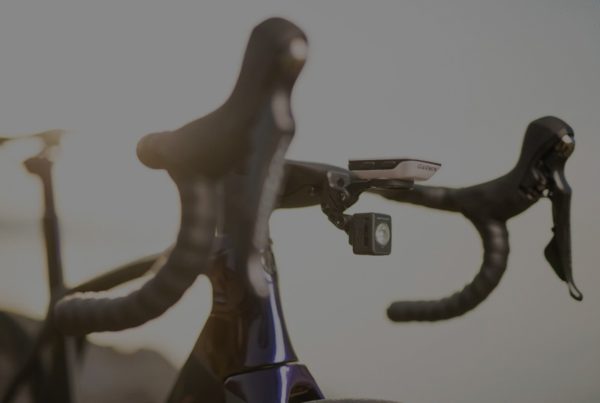Cyclists in Louisiana won’t be receiving legal protection as “Vulnerable Road Users” (VRU) anytime soon, after a vulnerable user bill was shot down in the Louisiana legislature last week. Headlining the opposition to the bill? State Rep. Kenny Havard, tireless crusader for keeping Louisiana’s strippers young and thin. In the wake of the bill’s defeat, cyclists are left vulnerable, as if they were naked on the road — and given Rep. Havard’s interest in strippers, a World Naked Bike Ride might be a surefire way to draw attention to cyclists’ vulnerability on Louisiana’s roads.
The vulnerable user bill began as an effort by motorcyclist advocacy organization A.B.A.T.E. to strengthen legal protections for motorcyclists and other vulnerable road users in Louisiana. In a typical VRU law, cyclists and other vulnerable road users — for example, pedestrians, equestrians, skaters, motorcyclists, road construction workers, and farm equipment operators — who are not safely ensconced within an automobile’s protective steel cage, are defined by the law as vulnerable. If a driver seriously injures or kills a vulnerable user, and is cited for careless driving, the driver may be subject to additional penalties, on top of the penalties that apply to whatever laws he or she broke. For example, if the driver passed a cyclist in a no-passing zone and hit the cyclist, the driver could be facing penalties for hitting a vulnerable user, on top of the penalty for passing in a no-passing zone.
That’s what happened in Oregon in 2007, when a careless driver passed cyclist Tim O’Donnell in a no-passing zone, just as O’Donnell was making a left turn. O’Donnell did not survive the collision, and outrage over the circumstances of his death — among other things, the driver had a suspended license — helped the Bicycle Transportation Alliance, with the able assistance of my friend, attorney Ray Thomas, convince the Oregon legislature to pass the first vulnerable user law in the country.
Today in Oregon, if a careless driver seriously injures or kills a cyclist or another vulnerable user, the driver may be subject to an enhanced fine of $12,500 and a one-year license suspension. But drivers can avoid these additional penalties by taking a traffic safety course and performing 100-200 hours of community service. And whether the careless driver pays the fine or performs community service, the law requires the driver to appear in court to answer the charge. In short, the law encourages redemption but backs it up with strong punitive measures that encourage convicted drivers to take the road to redemption.
Since Oregon enacted the first vulnerable user law, four other states have followed suit: Delaware, Hawaii, Vermont, and Washington, and an additional 17 states and the District of Columbia have laws on the books that protect vulnerable road users in some way, either by prohibiting certain acts or by providing for tougher penalties when a vulnerable road user is injured or killed. The vulnerable user bill before the Louisiana legislature would have established a penalty of up to $2,000, 200 hours of community service, or a three-month jail term for careless drivers who injure a vulnerable road user, and up to a $5,000 fine, 400 hours of community service, or two years in prison for careless drivers who kill a vulnerable road user.
Some might object that these laws are not necessary, that we already have laws on the books, and they just need to be enforced. Although this argument might sound rational, it’s just not true. Too often, when a careless driver injures or kills a vulnerable user, there’s no penalty at all, and when there is a penalty, it’s only a small fine for the underlying traffic violation — for example, the fine for failure to yield. But there’s no penalty for injuring or killing somebody, and the careless driver doesn’t even have to appear in court — they can just mail in their payment, and it’s over. With vulnerable user laws, there’s a penalty for injuring or killing somebody, and the careless driver is required to appear in court.
However, these VRU laws are not about punishing drivers like the Michigan driver who killed five cyclists and seriously injured four Tuesday. That person will likely be charged with several serious felonies. Instead, VRU laws address cases where the driver was careless and would otherwise only be charged with a minor traffic offense, even though somebody was killed. When states adopt a VRU law, careless drivers would now be held accountable for seriously injuring or killing another human being. Now, if the Michigan driver was “just being careless,” and texting instead of suspected DUI, for example, then that person wouldn’t be subject to a VRU law either, because like Louisiana, Michigan also rejected a VRU law.
Distracted driving kills around 10 people a day, every day, and lawmakers in both states aren’t taking this lack of penalties seriously.
But Rep. Havard wasn’t concerned about “enforcing the laws we already have.” His objection was more blunt: “If you don’t want to get hit by a car don’t play in the street. It’s pretty simple. Take responsibility for your own actions and quit playing the victim.” Rep. Havard didn’t see any need to hold careless drivers responsible for their own actions when they injure or kill law-abiding vulnerable road users. Maybe he was so distracted that he didn’t hear a citizen testify about being run down in her wheelchair by a careless driver, so of course his concerns about careless drivers being “accidentally” sent to prison after running down all of those cyclists “riding six wide” may have seemed more real than imaginary to him.
And Rep. Havard wasn’t the only one with imaginary concerns — the Louisiana District Attorney’s Association objected to the bill on the grounds that “intent” would be too difficult to prove. Memo to Louisiana’s District Attorneys: You don’t have to prove “intent” on a careless driving charge. Look it up.
So with the defeat of the vulnerable user bill this session, what’s next? New Orleans attorney Charlie Thomas says, “Our statewide plan now is to build broad-based support from all industries who will benefit from the protections of a VRU law. This includes sheriff’s associations (for traffic enforcement/roadside assistance), road-paving construction companies, and focused pedestrian organizations such as Lighthouse for the Blind. With this support, we will reintroduce the state bill in the 2018 session. Prior to this, we will ask the Orleans Parish City Council to pass a local VRU law that will apply in New Orleans.”
So for now, stay tuned, that round was lost, but this fight isn’t over yet.
This article, Legally Speaking: On Vulnerable Road User laws, was originally published on VeloNews on June 9, 2016.
Now read the fine print:
Bob Mionske is a former competitive cyclist who represented the U.S. at the 1988 Olympic Games (where he finished fourth in the road race), the 1992 Olympics, as well as winning the 1990 national championship road race.
After retiring from racing in 1993, he coached the Saturn Professional Cycling team for one year before heading off to law school. Mionske’s practice is now split between personal-injury work, representing professional athletes as an agent and other legal issues facing endurance athletes (traffic violations, contract, criminal charges, intellectual property, etc.).
Mionske is also the author of “Bicycling and the Law,” designed to be the primary resource for cyclists to consult when faced with a legal question. It provides readers with the knowledge to avoid many legal problems in the first place, and informs them of their rights, their responsibilities, and what steps they can take if they do encounter a legal problem. If you have a cycling-related legal question please send it to Bob, and he will answer as many of these questions privately as he can. He will also select a few questions to answer in this column. General bicycle-accident advice can be found at bicyclelaw.com.
Important notice:
The information provided in the “Legally Speaking” column is not legal advice. The information provided on this public website is provided solely for the general interest of the visitors to this website. The information contained in the column applies to general principles of American jurisprudence and may not reflect current legal developments or statutory changes in the various jurisdictions and therefore should not be relied upon or interpreted as legal advice. Understand that reading the information contained in this column does not mean you have established an attorney-client relationship with attorney Bob Mionske. Readers of this column should not act upon any information contained in the website without first seeking the advice of legal counsel.




